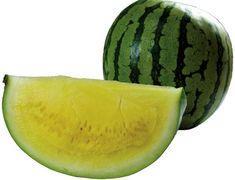
Watermelons have been thrust forward as the latest option in the continuing search for efficient biofuels.
So far, chip fat, sugar cane and rapeseed oil have been among the candidates to help power the planet, but a new study shows the exotic may well hold the key.
US scientists have discovered that the fruit is a great source of sugar that can be distilled into alcohol to be used as fuel.
The study, published in the Biotechnology for Biofuels journal, suggested that the two million gallons (9m litres) of waste created by US growers each year from sub-standard fruit could be used to power cars and machinery.
Researchers at the US Department of Agriculture, in studying rejected fruit, discovered that watermelons could produce about 20 gallons of fuel per acre that otherwise would go to waste.
The production of biofuels is a widespread goal across governments worldwide in the search for sustainable renewable energy. The UK’s Renewable Transport Fuel Obligation, set out by the government, requires five per cent of the fuel sold at the pump by 2010 to be biofuel, while the EU has a difficult task in ensuring 5.75 per cent of its transport power is biofuel by 2010 to meet its targets.
Dr Wayne Fish, who led the team of scientists, found that 50 per cent of the fruit was fermentable into ethanol which could provide valuable fuel.
He said: “We have shown that the juice of these melons is a source of readily fermentable sugars, representing a heretofore untapped feedstock for ethanol biofuel production.”
Watermelons contain lycopene and L-citrulline, two ‘nutraeuticals’ for which enough demand exists to make extraction economically worthwhile, according to the study.



